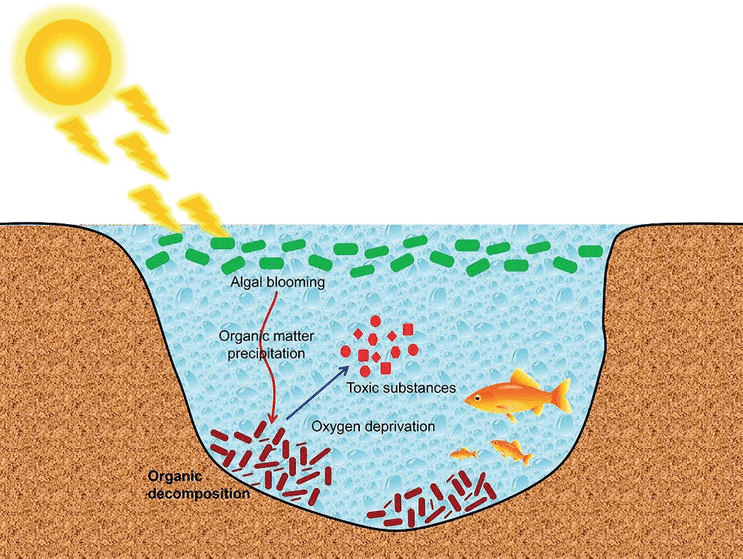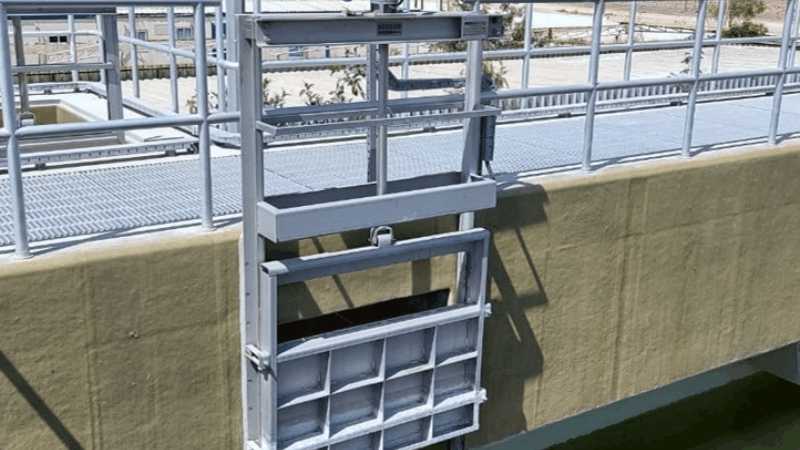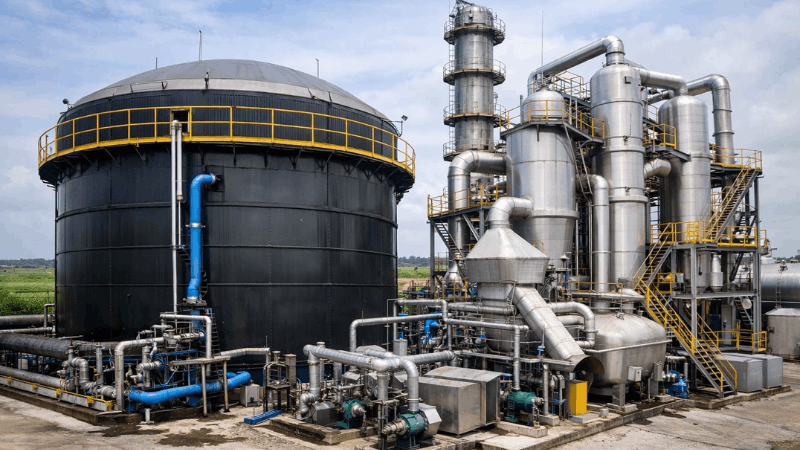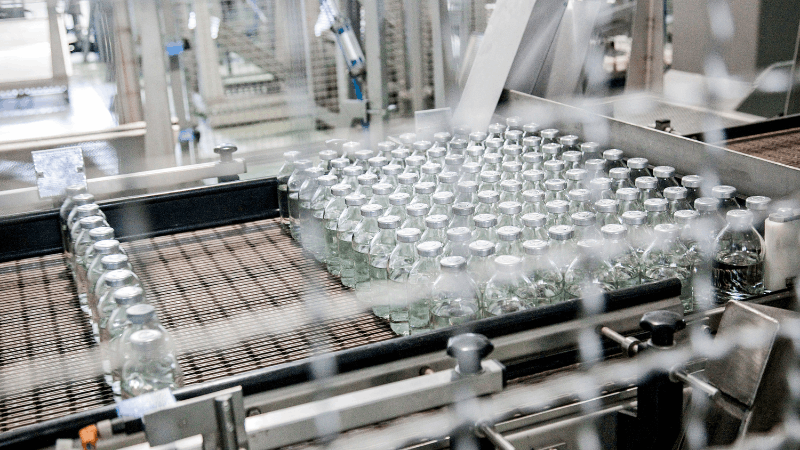Wastewater Treatment for Sustainable Fishery

Fisheries substantially contribute to the food requirements and local community development worldwide. To sustain and boost the growth of this sector wastewater treatment is essential.
When untreated or partially treated wastewater is discharged into the receiving channels it adversely affects the marine ecosystem. This article will highlight various aspects of wastewater treatment concerning fisheries – its impact, key benefits, and how it can boost fisheries and economies globally.
Impact & Benefits of Wastewater Treatment
Industrial wastewater contains a variety of contaminants that can be harmful to fisheries. To conserve and boost fishery authorities have set guidelines for wastewater discharge. These guidelines ensure that the wastewater mitigates the adverse effects and promotes a healthy marine ecosystem. The commonly found impacts and benefits of wastewater treatment are:
Contamination Control
Untreated or partially treated wastewater may consist of a variety of compounds like heavy metals, oils, chemicals, pathogens, hormones, suspended solids, etc. These compounds when released into the environment contaminate the water body. A contaminated water body isn’t ideal for breeding fishes. Some of the contaminants are also responsible for increased water temperature, poisoning, etc., thereby having detrimental effects on the marine ecosystem.
Wastewater treatment ensures that harmful contaminants are eliminated before release which includes microbes, thus ensuring healthy water bodies for breeding fishes.
Prevents Chemical Change
Certain substances in wastewater can be toxic, such as copper and zinc. Copper increases metabolic demand, whereas zinc damages fish gills. High water temperature also affects the toxicity of some chemicals in the water and the sensitivity of living organisms to toxic substances.
Eliminating heavy metals and chemicals from wastewater during treatment ensures that water bodies remain safe from chemical change resulting from discharge of untreated or partially treated wastewater.
Maintains Ecosystem
Wastewater containing phosphorus and nitrogen, when released into a water body leads to eutrophication – the excessive presence of nitrogen and phosphorus in water makes it overly enriched with nutrients, leading to increased growth of algae (blooms) and plankton. Algal blooms, especially those of cyanophytes release cyan toxins, which are known to harm aquatic life. Eutrophication deteriorates water quality and consumes dissolved oxygen in water bodies, eventually leading to a ‘dead zone’ and an ecosystem incapable of supporting life underwater.
Wastewater treatment addresses this issue. Nitrogen & phosphorus mitigation treatment processes ensure that wastewater discharged into the environment does not cause eutrophication and maintain the natural marine ecosystem.
A healthy marine ecosystem supports biodiversity, an important aspect of fisheries.
Maintains Natural Water Quality
Wastewater may contain suspended solids if untreated. Suspended solids comprise a fine particulate that can cause physical damage to fish gills. Discharge of wastewater containing suspended solids is dangerous for fish also, it makes the physical appearance of water murky.
Eliminating suspended solids from wastewater ensures preserving naturally occurring sedimentation and the physical water quality of the water body, both important for fisheries.
Sustainable Fishing
Fishing is sustainable if it leaves enough adult fish to breed and sustain a healthy population in the oceans/water body and minimizes impacts on habitats and ecosystems.
Sustainable fishing ensures a healthy and diverse marine ecosystem. A healthy environment helps safeguard endangered, threatened, and protected species. All the species play a unique and crucial role within the marine ecosystem, a part of a balanced food web of predators and prey. The loss of a single species due to overfishing subsequently affects the entire food web.
Sustainable fishing is not limited to restricting overfishing activities, it also involves active participation from stakeholders – the fishing community, government, researchers, industries, and supply chain to be able to provide for ever-increasing protein demand that is met by fishery, worldwide.
Who Benefits from Sustainable Fishing?
1. Fishing Industry: Implementing sustainable fishing practices helps preserve the fish population, and enables fishermen to continue to catch fish for years to come. It ensures long-term sustainability of the fishing industry, continued employment, and the creation of new jobs.
2. Food Security: Depleting fish populations is a matter of great concern in ensuring food security. Following sustainable fishing practices help preserve fish population, ensuring fish availability in the long term thereby helping meet the food demand.
3. Environment: Overfishing exploits target species, downsizing marine food webs. Overfishing leads to increased fishing effort, increased energy requirements, and CO2 footprint. Also, sustainable fishing ensures a healthy marine ecosystem which controls climate change and helps safeguard our environment.
4. Industries: Treating industrial wastewater conforms to government guidelines and avoidance of hefty fines levied for non-compliance.
At the same time, climate change is gaining importance globally. Today, industries are expected to act responsibly in providing quality products and, best services, or for being environment conscious. Industries enhance their brand equity by positively impacting the environment
Industries’ Role in Sustainable Fishing
The importance of treating wastewater by industries has an extensive and long-lasting impact on the environment, livelihood, and food security. The release of partially treated or untreated wastewater into the environment directly affects fish breeding whereas, the benefits of treating wastewater before release make it clear that wastewater treatment is essential for sustainable fishery.
Industries adhering to the wastewater discharge norms require incorporating essential equipment such as screens viz., bar screen, basket screen, multi rake screen to arrest floating debris. To mitigate the presence of oil in wastewater oil skimmers such as belt type, tube type, disc, drum, brush, or weir are recommended. Similarly, an oil water separator, decanter, and specialized treatment processes to treat complex compounds might be required for a specific wastewater stream.
Industrial wastewater reuse can also address water scarcity and depletion of natural water resources essential for aquaculture, aiding fish farming. In consideration of the above, the importance of wastewater treatment is evident.
Frequently Asked Questions
Q.1 How does a floating decanter effectively remove contaminants from wastewater?
A. A floating decanter effectively removes contaminants from wastewater by utilizing buoyancy to lift and separate impurities, allowing clean water to be drawn from the surface while leaving pollutants behind.
Q.2 How can an oil water separator help to protect the environment?
A. An oil-water separator helps protect the environment by efficiently removing oil and grease from industrial wastewater, preventing harmful pollutants from contaminating natural water sources.
Q.3 What are the benefits of using screens in wastewater treatment?
A. The benefits of using screens in wastewater treatment include efficient removal of large debris, prevention of equipment damage, and improved downstream processes by ensuring a cleaner influent for further treatment.





